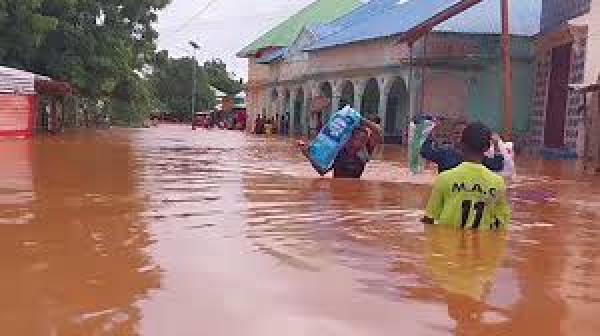
US Secretary of State John Kerry called Friday for a "coalition of nations" to combat the "genocidal agenda" of the Islamic State militant group, which has seized large sections of territory across Iraq and Syria in recent months.
Writing in a New York Times opinion piece, Kerry called for "a united response led by the United States and the broadest possible coalition of nations" to tackle the Islamist group.
"What's needed to confront its nihilistic vision and genocidal agenda is a global coalition using political, humanitarian, economic, law enforcement and intelligence tools to support military force," Kerry wrote.
Kerry said that he and US Defence Secretary Chuck Hagel would meet with their European counterparts on the sidelines of a NATO summit in Wales next week to enlist the alliance's assistance in combating the Islamists.
Kerry said he would then travel to the Middle East to build support for coordinated action "among the countries that are most directly threatened". He also said that the United States would unveil a plan of action at a meeting of the UN Security Council in September, when Washington will hold the council's rotating presidency.
Kerry's call came a day after US President Barack Obama said that he had not yet decided on a plan to battle Islamic State militants in Syria.
"We don't have a strategy yet," Obama said ahead of a meeting with US security chiefs.
The admission attracted immediate criticism from Republican lawmakers. White House spokesman Josh Earnest later clarified that Obama was referring to US military options in Syria, and that a diplomatic strategy for confronting the group was already in place.
Britain on Friday raised its terror alert level over fears of a possible terrorist attack to "severe", meaning an attack is "highly likely". Prime Minister David Cameron told reporters there was "no doubt in my mind" that Islamic State jihadists had their sights set on targets in Europe.
US pursues airstrikes in Iraq
The United States began carrying out airstrikes against the Islamic State group in Iraq earlier this month but has yet to decide if it will expand that military action into Syria, possibly hitting the Islamists' base in Raqqa.
Obama's decision to begin US surveillance flights over Syria this week prompted speculation that he was on the brink of expanding the fight against the militants from Iraq into Syria. Some US lawmakers criticised the move, saying they had not been sufficiently consulted over possible US military action.
The Islamic State group first prompted widespread concern as it made rapid advances in both Iraq and Syria starting in early June with the capture of Iraq's second city of Mosul. The militants have sparked fear as they kill hundreds in the areas they have seized, including in gruesome beheadings and mass executions.
The jihadists posted grisly video footage on the Internet this week of scores of bodies heaped in the desert they boasted were those of Syrian soldiers they captured and killed following the seizure of the Tabqa airbase.
They have repeatedly posted gruesome videos, which have appalled international opinion but served as a propaganda tool to recruit volunteers.
A UN-mandated report has charged that public executions, amputations, lashings and mock crucifixions have become a regular fixture in jihadist-controlled areas of Syria.
Syrian President Bashar al-Assad has said Damascus is willing to cooperate internationally on tackling jihadists, but that any military action on its soil must be coordinated.
That is a tough sell for Washington, which has long backed the rebels seeking Assad's ouster and accuses his regime of serious rights abuses, including the use of chemical weapons.
Read FRANCE 24's analysis: Airstrikes and Assad - Obama’s military conundrum in Syria
The civil war has now driven three million Syrians to flee, creating the "biggest humanitarian emergency of our era", UN refugee agency chief Antonio Guterres said Friday.
The war has also killed more than 190,000 people according to the UN, and seen jihadist groups like the Islamic State and al Qaeda's Syrian affiliate, the Nusra Front, gain new ground and prominence.
Al Nusra is holding at least 44 UN peacekeepers hostage in the Golan Heights after seizing the Syrian side of the Quneitra border crossing with the Israeli-occupied Golan.
The 44 troops, from Fiji, "are safe and in good health", a UN spokesman said Friday without saying whether the men had been freed yet.
Another 72 peacekeepers from the Philippines have been surrounded by rebels, according to the UN, which said they "have not been harmed and are in good health".
The peacekeepers are from the UN Disengagement Observer Force (UNDOF) tasked with monitoring a ceasefire between Syria and Israel since 1974.
In Iraq meanwhile, government forces readied an offensive to break a two-month Islamic State siege of the Shiite Turkmen town of Amerli.
According to the International Organisation for Migration, 1.6 million Iraqis have been displaced so far this year, with more than 850,000 leaving their homes this month alone.
AFP, REUTERS



















